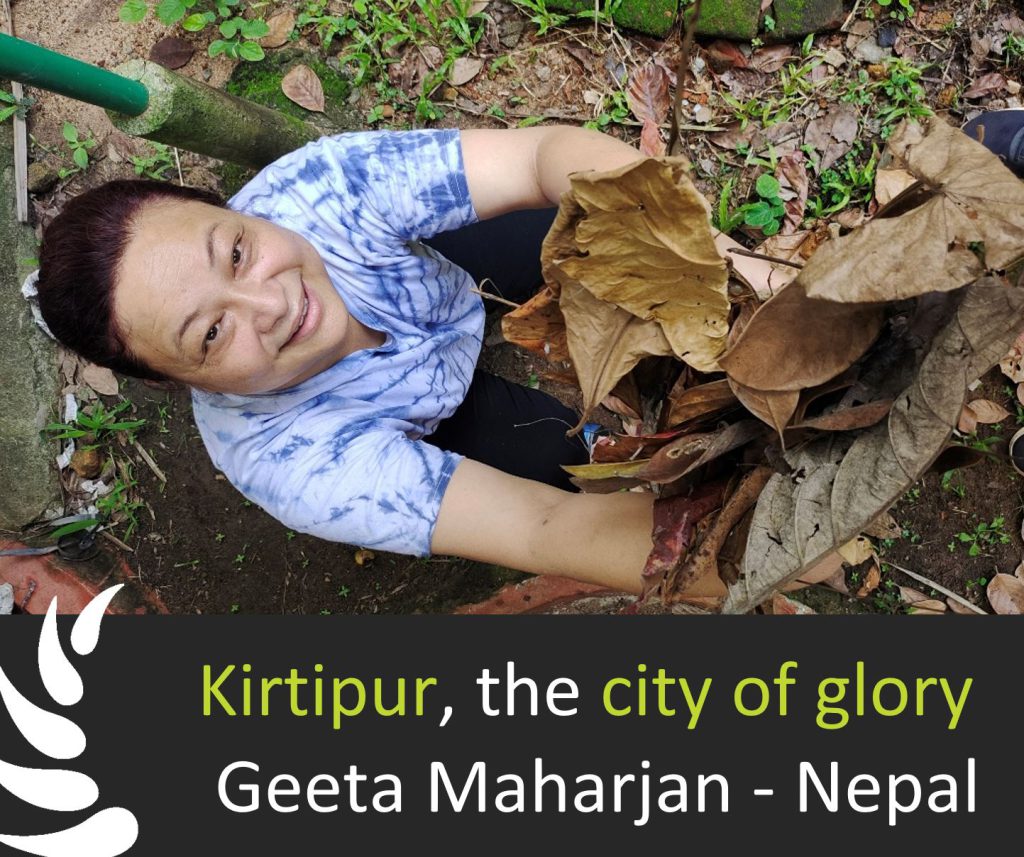Kirtipur, the City of Glory
by Geeta Dangol Maharjan – Nepal
“Boom!”
What was that?
It was a Saturday, early in the morning, when we heard this loud sound.
My sisters and I were sleeping when our father came rushing into our room to check on us. It was a bomb that had exploded, and our house was located at the centre of the main road. Now we heard a huge crowd of people gathering in front of our window. Fear was in the air.
I was born in Kirtipur, also known as the “City of Glory”, a town which is located on the southeast of Kathmandu Valley. Kathmandu is the capital of Nepal.
Nepal had always been a peaceful country, ruled by the late King Birendra. It used to be safe before the civil war started in 1996. Then there were explosions of bombs everywhere. The Nepalese became insecure. The political conflicts lasted from 1996 to 2006. Since most bombs were built with pressure cookers, the term pressure cooker became a taboo.
During this time, our lives were disturbed. Whether daily activities, education or employment, nothing was functioning normally. Fear was everywhere. Having grown up in a family with a business background, we received life-threatening letters that were pushed under our main door almost every morning. These were requests for money to support the fight. My parents were in constant worry whenever we were outside or coming back from school.
Seeking safety, people started to migrate from Kirtipur to Kathmandu, and my sisters and I were sent to India for further studies. After my studies, I started working in India; later, I moved to France to help my sister in her business.
As my parents were getting older and needed support, I returned to my hometown in 2017. But now I was a stranger. After so many years living, studying, and working in India and Europe, I felt lost in my own home. I didn’t have friends, and I could not connect with the people surrounding me.
But my hometown had changed as well. It used to be a tourist attraction—beautiful old buildings, meticulously kept—but now, after two decades, it was poorly managed in terms of waste, and lots of concrete buildings had replaced the paddy fields and farming land. The population had exploded, but the inhabitants suffered from lack of employment. Men went abroad for employment, to countries like Qatar, UAE, Saudi Arabia, Malaysia, Japan, and Korea, where many got exploited doing hard labor. Women were equally eager to leave the country, but due to their family responsibilities, most women were left behind without jobs.
I was desperate to find work or even to do something on my own. But I wasn’t sure what I could do. Meanwhile, my father was encouraging me to join a gathering at a festival. And there I met women who were looking for opportunities like me. We all suffered from the changes in our community and felt that something needed to be done, especially for and with those women who were worse off than us, those who were alone, unemployed, and thus marginalized. We decided to do something for our community and started an entrepreneurship training program for women.
When I first came back from Europe, I had felt a deep concern about the pollution and the growing waste. But back then, I had felt helpless. Now, with our team, we hope that we can start a change. Next to entrepreneurial training, we offer waste management programs to try to keep our City of Glory clean. Waste and pollution are an issue in cities all over the world. And although Nepal has become safe, we fear another, more global threat. We feel that we all are sitting on a ticking time bomb.

